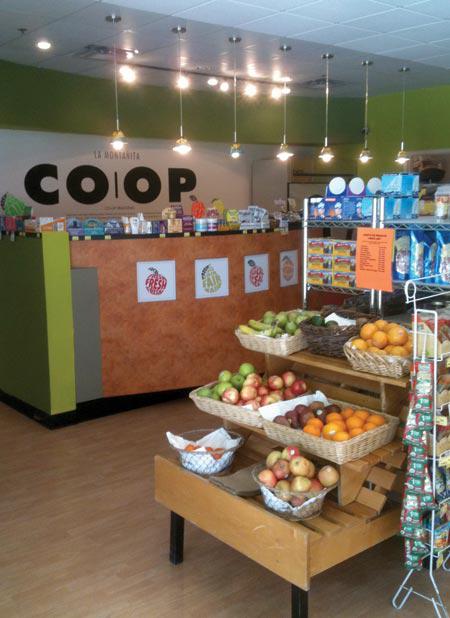Reaching the College Crowd

Like no other generation, Gen Y gets the green movement. They've grown up with terms such as going green, triple bottom line, sustainable, organic, local. And Gen Y (generally defined as those currently between 16 and 30 years of age), more than any other generation, embraces green and seeks it out.
Food co-ops often note the extensive overlap in values shared by Gen Y members and co-op members—from the principles underlying the cooperative model to healthy, quality food to concern about how food is produced. Yet Gen Yers shop at co-ops in relatively low numbers, and this despite the fact that many co-ops are located in college towns.
Perhaps location is a factor. The new Cooperative Food Empowerment Directive (CoFed) campaign is focused on creating student-run co-op stores and cafes on college campuses. In Albuquerque, N.M., La Montañita's Nob Hill store is just a 10-minute walk from campus, and although the store is staffed with a proportionally high number of students, Gen Yers don't always take the walk. Anecdotally, sales to Gen Yers have been relatively low. When the opportunity arose for La Montañita to create a campus location, they jumped at the chance.
"The Grab & Go store grew out of our work with the University of New Mexico (UNM) Sustainability Studies Program," explains Robin Seydel, membership and community development manager for La Montañita. "For the past several years, I've been doing guest lectures on local food systems, our foodshed project, and the cooperative business model to all the incoming 101 classes, as well as some of the classes in the Anderson School of Business. Some of the students got a wild hair after a talk I gave in Professor Maggie Seeley's Sustainability Studies class and started to work on opening a co-op storefront themselves."
Seydel supported the students as they began to navigate a semester-long process of establishing a co-op: creating by-laws, membership structure, fundraising, etc. But the scope of the project and the obstacles proved too much for the students, given the high demands of their academic program. Instead, upon the recommendation of the students—and after working out an agreement with the university food service provider, Chartwells (through which all UNM food vendors are contracted), and the student union board—La Montañita was given the green light to establish its UNM co-op store.
"The store timeline was extremely compressed," explains Seydel. "We had our first discussion with Chartwells in mid-November and opened the store on Jan. 17—just eight brief weeks later. We had no time to do formal market studies." La Montañita senior management saw alignment between what they could offer in a grab 'n' go format and the UNM students, faculty and staff's appreciation for good, healthy food and the local foods movement.
Another factor guiding La Montañita's decision was its desire to keep retailers Whole Foods and Sunflower—recommended by UNM's Anderson School of Business to fill the slot—out of the neighborhood. Despite the business school's recommendations, the student's, to their credit, insisted on a cooperative model rather than the conventional corporate structure.
A couple months in, La Montañita's senior leadership team has been pleased with the positive student, faculty and staff response to the UNM store. While it's still too early to gauge the level of Grab & Go's success, sales have been strong—averaging about $1,600/day on weekdays with small average transactions of approximately $5.
The store carries a smattering of bulk, grocery, dairy and small sizes of health and body care products, but mostly, just as the name implies, it is grab 'n' go foods that are the top sellers. That probably wouldn't surprise David Henkes, senior principle for the foodservice research firm Technomic, who was recently quoted in Fresh Cut magazine: "This generation of college students has been raised on fast food, so they're not going to suddenly begin cooking. They instead will look for more healthful options at restaurants and on campus."
Grab & Go sales peak at the lunch and dinner hours, and the La Montañita Nob Hill store's deli delivers several times a day to keep the small campus cases filled. They sell prepacked burritos (veggie, meat and vegan), muffins and scones, sandwiches, salads, soups, sushi, cookies, and beverages. Whole fruits and single-serve yogurt sales are increasing, but deli foods and beverages still sell best. So busy is the lunch and dinner rush that planning is underway to renovate the space slightly for a second cash register to reduce checkout wait time and better serve the UNM community.
While it's early in the game to judge Grab & Go's success as well as that of CoFed co-ops, the eagerness of students to create and support food co-ops on their campuses is very encouraging—as are the alternate models CoFed and La Montañita offer for making campus co-ops a reality. ■







